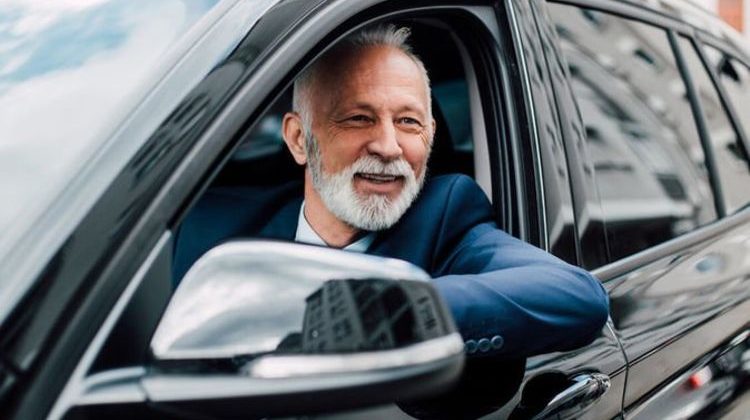Martin Lewis issues warning for driving licence scams
We use your sign-up to provide content in ways you’ve consented to and to improve our understanding of you. This may include adverts from us and 3rd parties based on our understanding. You can unsubscribe at any time. More info
While people can enjoy a well-earned retirement when they reach their 70s, they may also find their health declines. Tempered reaction times and potential visual issues could make them dangerous on the roads. Requiring a new license gives authorities the opportunity to measure the potential risks an elderly driver may pose.
How to get an over 70s driving licence
Driving licenses automatically expire when people turn 70, and people can renew them for free up to 90 days before their birthday.
The DVLA will send them a D46P application form around this time outlining options for people with photocard and paper licences and directions to renew online.
Photocard holders must enclose their card and a new photo, as do those with a paper licence.


People using the online option will need to register via the Government’s website and follow the included steps.
Some older drivers can become dangerous on the road when a health condition gets in the way.
As such, people looking for a new licence will need to declare any potentially dangerous diseases.
The DVLA has made it a legal obligation to declare six.

They include:
- Dementia
- Insulin-treated diabetes
- Parkinson’s disease
- Epilepsy
- Chronic neurological conditions
- Eye conditions (affecting one or both)
After declaring any health conditions, the DVLA may need some additional information.

The organisation can take several additional actions, ranging from contacting the applicant’s doctor to ordering an assessment.
Local driver assessment schemes and mobility assessors can provide a comprehensive overview of someone’s driving ability in their older age.
The types of assessment they order may include:
- On-road
- Cognitive
- Physical (whether the driver can still handle car controls)
- Visual
The results of these assessments could ultimately determine whether they drive again.
If the assessors say they have a condition that prevents them from driving well, the DVLA can bar them until they see some improvement.
They will need to apply once again when they feel the condition no longer stands in their way.
Otherwise, they may have to adjust to life without driving.
Source: Read Full Article
